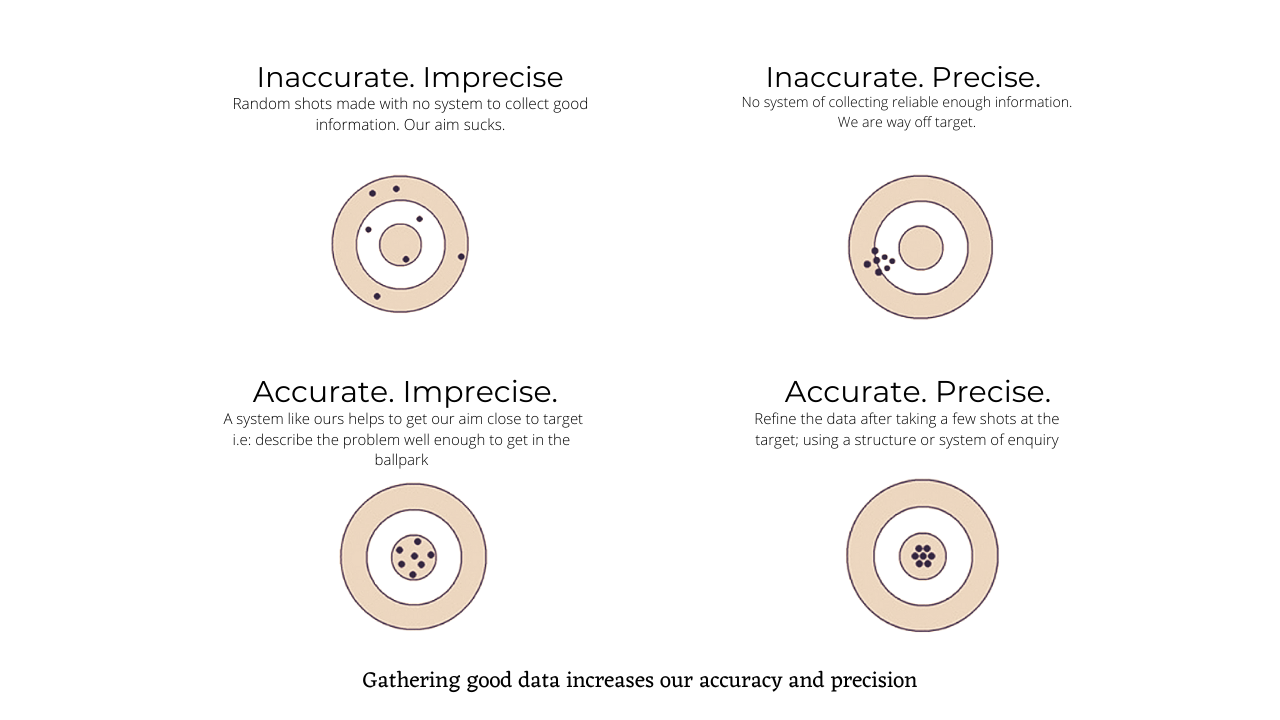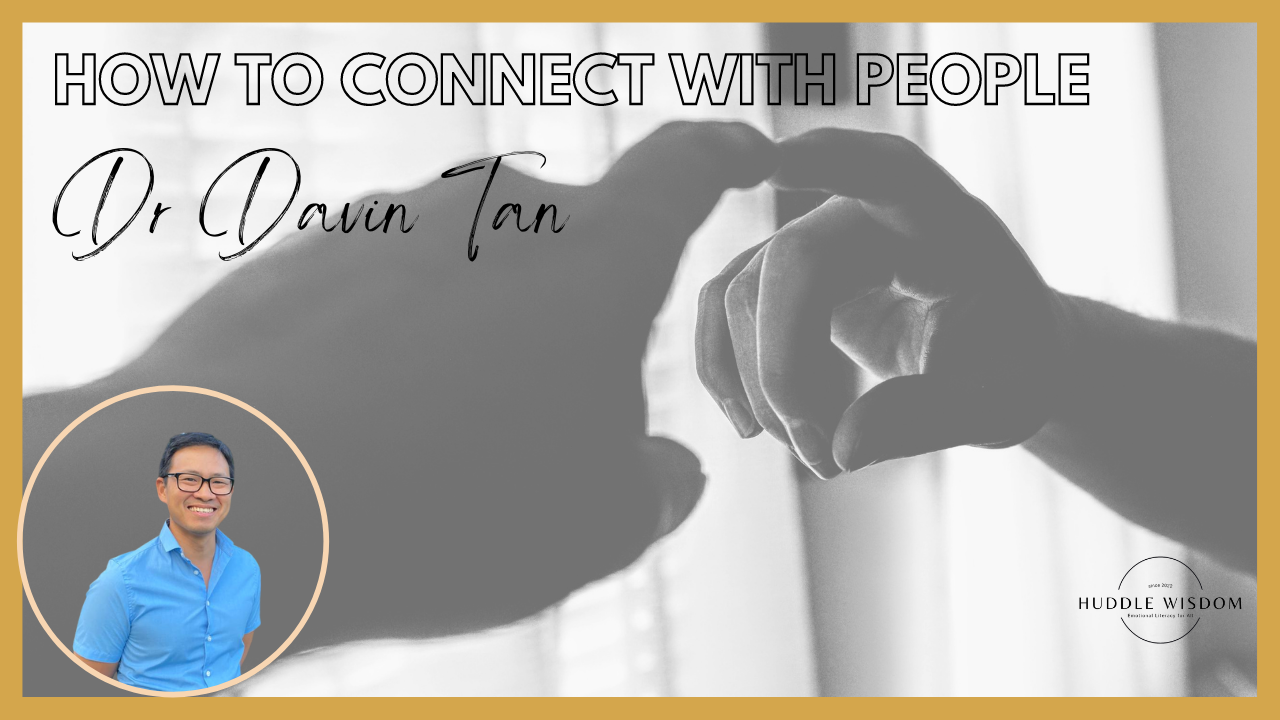Anxiety, Parenting, and What Actually Helps
Real world reflections from the clinic, the home, and everywhere in between
Understanding Accurate Empathy: The Three Components

At its core, empathy requires an understanding of three essential components. These components are: cognition (thoughts), affect (emotion), and perception (feelings).
Perception, for instance, is the ability to sense things through our senses. Although intangible, it is real. The wind, for example, can be felt but not seen. Similarly, when we feel an unexplainable connection to someone, it's like the invisible pull of a magnetic force.
However, empathy is not just about perception. Overemphasizing this component can lead to inaccurate empathizing due to neglecting the other components. Therefore, all three components need to be considered for optimal balance and impactful empathizing.
By training yourself to be sensitive to the relative "weight" of each component in any given moment, your empathic skills will improve significantly. This understanding can help to decrease the likelihood of invalidating someone and i...
Teaching Resilience in Children: A Guide for Parents

Teaching Resilience in Children: A Guide for Parents
As parents and educators, we all want our children to develop resilience and perseverance in the face of hardship. But which challenges should we encourage them to tackle? This is a subjective matter. Some kids are willing to go through the pain of overcoming obstacles to accomplish things that matter to them, while for others, it may seem like a waste of time and energy.
Before we can determine what matters to us and our children, we need to have a clear understanding of our values. This way, we can focus our energy and resources on the things that truly matter and avoid persevering with things that don't.
I believe that resilience is not a character trait but rather a choice. While some children may appear to be resilient because they don't show distress, this is not always the case. It's important to remember that resilience depends on various factors such as personal drives, interests, motivations, and context.
Getting through tough parenting seasons

Winters can be rough (or any season for that matter depending on your circumstances) in our lives and it can really feel like it's never-ending.
I think though that this could be our opportunity to take stock, rest and store energy we need for new growth. To plan what seeds we want to sow when the time come perhaps.
It can be extremely hard when or if a cold bitter season arrives. I definitely struggle to remain hopeful and to be still especially when it feels like there are cold harsh winds of various demands and pressures bearing down - and all we're trying to do is to stand still!
But when I find moments of stillness, I do my best to capitalise on those moments and spend energy really meditating on the ordinary things - what else can I really do in the midst of overwhelm? I can't think too far ahead because that might just heap anxiety onto what I'm already feeling, I don't want to think about the past too much lest it fills me with whatever unhelpful stifling emotion that that ...
How do we stop yet another school shooting? [WARNING**** Material in post might be distressing to some folks]]

I don’t often read the news these days…and for good reason. There’s enough tragedy flashing up on my social media feeds already that I’m going to have to increase my antidepressant dosage.
The media have referred to Salvador Ramos as a man. He only just turned 18 last Monday. He’s a child; not a man. But he has been described to have been the shooter behind the killing of 19 children and 2 of their teachers in Uvalde, a city of about 16000 people nestled between the Texan/Mexican border and San Antonio in the USA.
If you were like me having come across that piece of news, I’m sure you would have felt sickened, shocked, outraged, saddened, confused, anxious and maybe frightened?
We’ve seen this before. Remember Columbine? Sandy Hook? South Florida? Buffalo? South Texas, and many other tragic events involving kids killing kids. The news talk about the who/what/when/where/how but hardly the why. I suppose it’s easy to let our emotions get the better of us and we can hypothesis...
The Importance of Empathy: Building Strong Relationships with Your Children and Others

Have you ever felt misunderstood or invalidated when trying to express your thoughts and feelings to a friend or family member? It's a common experience that can leave us feeling frustrated and unheard. But what happens when we flip the situation and put ourselves in the shoes of our children? It's easy to understand why they may stop talking to us or give us the silent treatment. So, what can we do to improve our communication skills and build stronger relationships with those around us?
The key is to focus on understanding both what the person is saying and how they are feeling. When we feel heard and understood, we feel more secure and settled. However, relying on our assumptions, projections, and presumptions can lead to misunderstandings and misinterpretations. To truly understand someone, we need to set aside our own biases and tune in to their words and emotions.
To improve your communication, try these helpful tips:
- Avoid giving unsolicited advice or making ...
Instilling Values in Children: A Guide for Parents

As parents, we try our best to shield our children from negative influences. However, the reality is that children are like sponges, absorbing everything they see and hear, even if they don't fully understand it. That's why it's crucial for us to guide them through these experiences and help them make sense of the world around them.
Teachable moments are the best opportunities to teach our children about values. It's in the day-to-day moments of life that they see our values play out organically. For instance, instead of giving a didactic lecture on the merits and demerits of virtue ethics, children will learn more from watching how we handle conflicts and problems in the heat of the moment.
It's important to ask children questions about how they perceive situations and how they would respond. This helps to structure conversations around the values you would like to impart. Using stories from books or movies can also help to illustrate important values. Be sure to ide...
Managing Sibling Jealousy: The Key to Maintaining Strong Family Bonds
Sibling rivalry, while a natural part of growing up, can strain relationships if not managed effectively. It’s crucial to stay alert to your children’s emotional health and respond suitably when signs of jealousy emerge.
A specific form of jealousy that demands our attention stems from the fear of losing parental affection. Children may react in various ways when they feel insecure, ranging from subtle hints to explicit actions. The remedy, however, remains constant - fostering connection. Empathy and quality time form the foundation of all personal relationships, and it’s essential to prioritize these for our children. We must strive to provide them with as much attention and connection as possible.
Inevitably, some children may require more attention than others. Hence, it’s vital to create unique traditions and rituals for each child. Allocate individual time for each of them and guard this time as if it’s indispensable. While maintaining equal attention for all might be challengi...
The Art of Praising Children: Balancing Motivation and Humility
Many of us believe that praising and complimenting children is a positive action, but did you know that there is also such a thing as unhelpful praise? How can we reinforce good behaviour without unintentionally overinflating their ego? How do we ensure that our approval isn't dependent on their performance? In this video, we've outlined four key ideas to help you navigate this tricky topic:
- Be authentic and genuine with your praise
- Connect with your children frequently, so they don't feel like your attention is based solely on their accomplishments.
- Avoid comparing your child to others
- Refrain from praising or commenting on aspects of their appearance or natural intelligence, as they have no control over these factors.
Tune in to this episode on the podcast to learn more.
Episode 084: dont be cringe when you praise your kids. Try this technique.
Encouraging Children to Express Emotions Non-Verbally
I wanted to share one of my favourite tips for helping kids talk about emotions (using an empathic approach). And you actually don't have to do a heap of talking yourself! Jump in and check it out now!
Key ideas to connect with emotionally sensitive kids

To be influential, building a connection is essential. Trust is the foundation of any productive relationship, and it's impossible to exert influence without it. However, as parents, this can be a challenging hurdle to overcome.
We've lost touch with our innate ability to connect with others, perhaps because it requires us to let our guard down and become vulnerable. But to be authentic and genuine, we must find a way to break down these barriers and build bridges with the people around us.
This is especially true with our children. They need to feel heard and seen, and it's up to us to create that connection. We must apply unconditional positive regard and be reflective instead of reactive. Listening is key, and we must make an effort to suspend any apprehensions we may have.
In this video, we'll explore key ideas to help you build meaningful connections and increase your influence.

